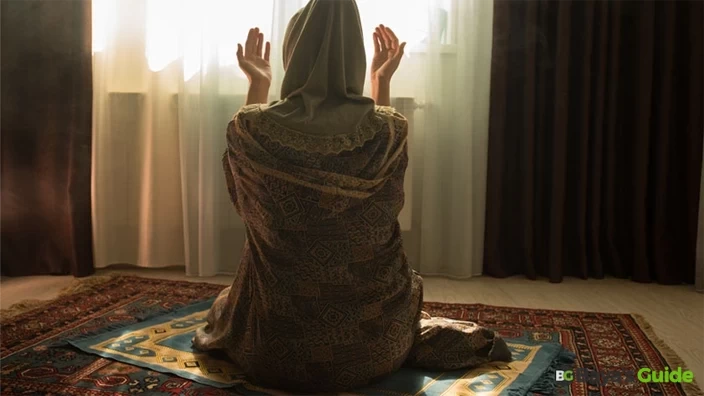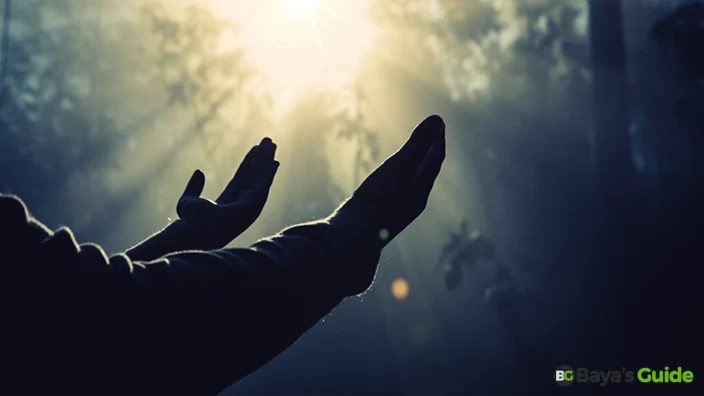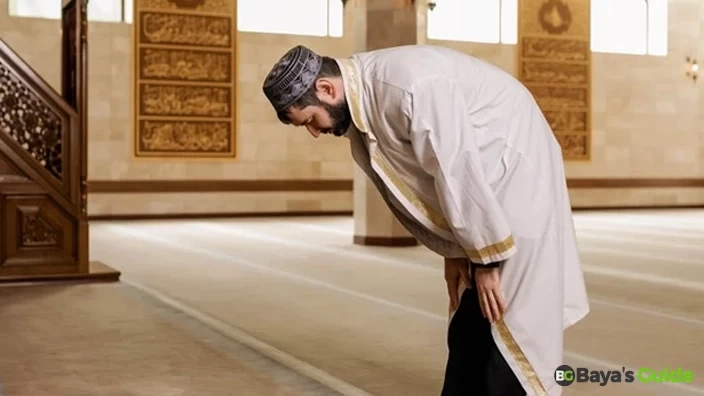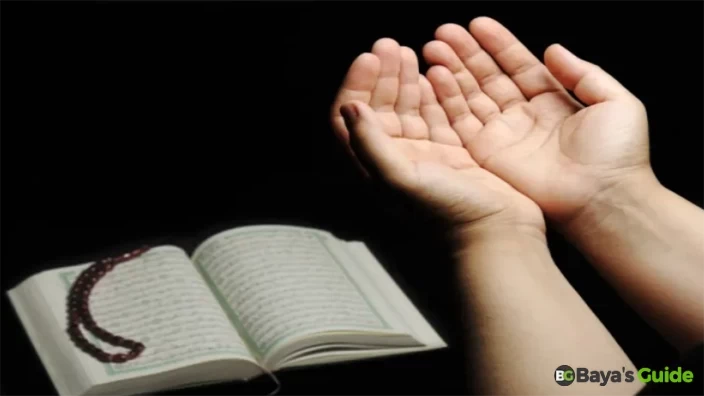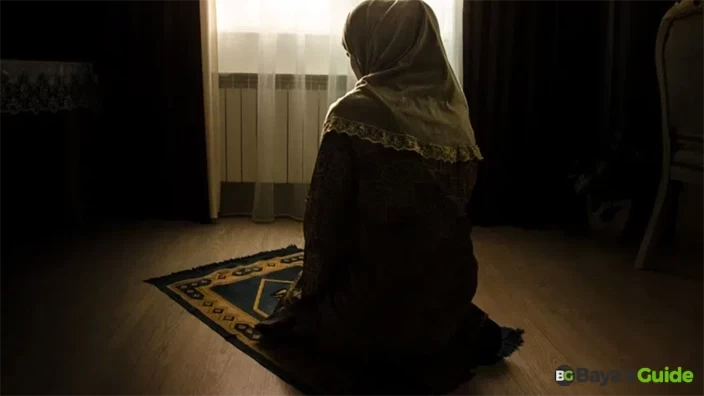The word "Istikhara" itself means to seek the good and that which is good, reflecting the intention behind the prayer. Istikhara means to get help from Allah while making a decision. Muslims perform it before making decisions that are neither obligatory nor prohibited. They do it to seek Allah's counsel for matters like marriage, career choices, and other significant life events. These decisions are significantly going to affect your future life, whether you have to choose your career, a life partner, or any other choice; for that, you need guidance beyond your thoughts or understanding.
If you don’t know what to do in any matter, go for Istikhara as soon as possible. So, let's have a look at How To Pray Istikhara.
Table of Contents
What Is Istikhara Prayer?
Istikhara is a beautiful sunnah prayer for "seek goodness" or "asking for guidance." It is a powerful Islamic tradition rooted in faith, believing that Allah has a plan and can guide your heart toward what's best. This prayer is recommended for making difficult decisions and offering solace, clarity, and satisfaction. You have to remember the istikhara supplication for this purpose. So, the worth of Istikhara is far above the ground, like any other prayer.
In this guide, we explore the significance of Istikhara, a Sunnah prayer, and provide a step-by-step method for performing salat ul istikhara with sincere intention. Whether you're a devout follower of the religion of Islam or seeking to understand this tradition, this How To Pray Istikhara guide offers insights into seeking divine guidance through this night prayer
Ways To Know How To Pray Istikhara
Prophet Muhammad (ﷺ) emphasized the importance of Sala tul Istikhara as a highly recommended Namaz following daily prayers. Pray this, as it is the best way to seek guidance from Allah. To experience its fruitful and sincere impact, it's crucial to understand the precise method of performing Istikhara.
1- Perform Ablution
In Islam, ablution or wudu is a prerequisite before engaging in any ibadah to ensure cleanliness and sanctification. Focus on your intention while performing ablution. Wash your hands, nose, mouth, face, and lower forearms three times, reciting specific prayers during each step. Next, gently pass wet hands over your ears, head, and neck. Finally, wash your feet three times, commencing with the right foot. In certain specific circumstances, a full bath or ghusl may be required for purification.
After completing ablution, raise your right index finger towards the Bayt Allah (House of God) and the sky, reciting the prayer of bearing witness in Arabic, which translates to:
“I bear witness that there is no deity other than Allah alone; He is One; He has no partner, and I bear witness that Muhammad (Peace Be Upon Him) is His chosen servant and true Messenger.”
2- Selection Of Prayer Place
Prior to offering salah, it's crucial to verify that the place and objects you're using are clean and pure, as decreed by Allah Almighty and His Prophet (Peace Be Upon Him). Lay your mat with the orientation toward the Qibla in Makkah (The House of God). This ensures that your prayer environment is in accordance with Islamic principles.
3- Call On Your Prayer
When you stand before Allah Almighty, it's essential to center your intention. Begin by raising your hands to your ears and calling out the initiating words, "Allahu Akbar," which means "Allah is the Greatest." Afterward, recite the opening surah of the Quran, the Fateha, following Ta’awwuz and Tasmiah, which are the opening verses of every surah mentioned in the Holy Quran. This marks the beginning of your prayer.
4- Recite The Surah Fatiha
Before praying Salat-al-Istikhara, initiate with two rak’ah (prayer cycles), beginning with the recitation of Surah Fatiha. Don't forget to commence each Surah by saying:
“Bismillah hir-Rahma nir-Raheem.”[2]
Surah Fatiha is an integral part of every prayer, as it's recited in each rak’ah, and its English translation is as follows:
"Praise is only for Allah, Lord of the Universe.The Most Kind, the Most Merciful.The Master of the Day of Judgement.You alone we worship, and to You alone we pray for help.Show us the straight way,The way of those whom You have blessed.Who have not deserved Your anger,Nor gone astray."
5- Recite The Surah Al-Kafirun
The second surah you should recite after Surah Fatiha is Surah al-Kafirun from the 109th chapter of the Holy Quran, commencing with “Tasmeeya.”
“Bismillah hir-Rahma nir-Raheem.”
The translation of Surah Al-Kafirun is as follows:
"Say: O ye that reject Faith! I worship not that which ye worship, Nor will ye worship that which I worship. Nor will I worship those whom you have worshipped; Nor will ye worship that which I worship. To you be your Way, and to me mine."
6- Recite Of Surah Al-Ikhlas
Surah Ikhlas is a declaration of the oneness of Allah Almighty, The One and Only. It holds a significant place in each prayer, similar to Surah Fatiha. After reciting Surah al-Kafirun, recite Surah al-Ikhlas and commence with “Bismillah hir-Rahma Nir-Raheem.”
The transliteration of Surah al-Ikhlas is:
“Say: He is Allah, the One and Only; Allah, the Eternal, Absolute; He begetteth not, nor is He begotten; And there is none like unto Him.”
7- Recite The Solicitation (Istikhara)
As you offer the two rak’ahs of prayer, recite the Istikhara supplication, which is a plea to Allah Almighty, the Bestower of Everything.
The Salat-al-Istikhara transliteration is:
“O Allah! Behold, I ask You the good through Your Knowledge, and ability through Your Power, and beg Your favor out of Your infinite Bounty. For surely You have Power; I have none. You know all; I know not. You are the Great Knower of all things. O Allah! If in Your Knowledge this matter is good for my faith, for my livelihood, and for the consequences of my affairs, then ordain it for me, and make it easy for me, and bless me therein. But if in Your Knowledge, this matter be bad for my faith, for my livelihood, and for the consequences of my affairs, then turn it away from me, and turn me away therefrom, and ordain for me the good wherever it may be, and cause me to be pleased with it.”
In the prayer, there is an Arabic word, "haadhal amr" which means “this matter,” mentioned twice; you need to specify the issue or matter you wish to seek guidance on from Allah in place of that word.
8- Redo The Istikhara Prayer Until Your Task Is Met
According to some schools of thought, you should perform Istikhara prayer for seven days, but according to others, you need to say this prayer daily with the same zeal and sincerity until your matter is resolved. Surely, either Allah will resolve your matter within the days or turn your heart and mind to satisfaction with what He has planned for you.
Steps To Pray Istikhara
Steps | Details |
| Ablution (Wudu) | Perform ritual ablution on hands, face, and forearms by following the steps as they are said and saying prayers at the endpoint. |
| Prayer Place Selection | Be sure that the prayer area is clean, use sanitized objects, and put the prayer mat facing the Qibla in Makkah. Here is where Islamic principles are proposed to be respected. |
| Initiate Prayer | Let's stretch your hands high up to the ground, saying " Allahu Akbar," and begin with Surah Fatiha, who will compose the praises and seek guidance. |
| Surah Fatiha Recitation | The session begins with two rak’ah cycles of salat with the recitation of al Fatiha. The emphasis of the primary purpose of salat is to worship, submit to, and seek all guidance and help from Allah. |
| Surah Al-Kafirun Recitation | Fatiha Surah is a sequel to Surah Al-Kaferun where a believer does not accept false attitudes and worships |
| Surah Al-Ikhlas Recitation | As for the sessions, besides the prayers, add Surah Al-Ikhlas, which reveals the unicity and oneness of God. |
| Salat-al-Istikhara | As a part of the Istikhara prayer, focus on reciting the supplication that will seek Allah's guidance and blessings for specific circumstances or decisions. |
| Repeat Istikhara | If need be, do Istikhara daily in a sincere manner until you either find a resolution or you are satisfied, relying only on Allah's will and intelligence. |
The Art of Istikhara: Your Path To Informed Choices
1- Seeking Clarity Through Istikhara
Allah's messenger, Prophet Muhammad, Peace Be Upon Him, as you may already know, imparted the teachings and wisdom of the Istikhara prayer, aligning them with the verses of the Quran. The Sahabah (Companions) of Prophet Muhammad, Peace Be Upon Him, diligently upheld this prayer, even when they faced everyday decisions, including purchasing minor items.
In essence, Istikhara is a practice suitable for resolving challenging or uncertain situations, such as:
- Choosing the right degree or university.
- Deciding on a suitable job or career path.
- Selecting a compatible life partner.
- Making decisions related to property or a home.
- Preparing for a journey or travel."
2- Appropriate Time For Istikhar Prayer
According to scholars' consensus, the most suitable time for performing Istikhara prayer is after the obligatory prayer of Isha, although it can also be recited after the Fajr prayer. When conducting it, remember to offer two rak'ahs to seek guidance from Allah (known as Dua e Hajat).
It's important to note that the specific time and number of rak'ahs are not strictly mandatory. Offering two rak'ahs, especially late at night after the Isha, can be particularly beneficial, allowing you to go to sleep in the same state of devotion.
3- Seek Advice From A Religious Scholar
While there's no doubt that the Istikhara prayer can guide you to the best decision for your future, it's advisable to seek guidance from a knowledgeable individual before you perform istikhara. This will help ensure your heart's contentment and satisfaction.
You Might Also Like: How To Breed Bowgart
4- Heartfelt Sincerity
Sincerity is a fundamental requirement for every prayer. Concentrate your intention with a whole heart and mind when seeking guidance before making a decision. Find contentment in what Allah has planned for you.
5- Exercising Patience & Trust In Istikhara Prayer
Don't be restless or impatient. Remember, Allah is your Lord, not your servant; He does not adhere to your commands. There is no specific timetable for His responses. Thus, maintain patience, and hope, and prepare yourself to accept what is decreed for you.
Why Do People Perform Istikhara?
Here are the reasons why people love to perform it.
1- Clarity In Decision Making
Istikhara, as an Islamic means for soliciting Allah’s reflection, is a powerful force in helping one to have a clear mind in any decision-making process. When one considers the life-changing consequences, they step into a state of ambivalence. It leads you to many options and choices. It resolves the ones which the human mind cannot do by getting divine guidance.
Lovers of God being sincere by praying and asking him to guide them is when they open themselves to knowing and understanding the signs that can enlighten them on the best path to take. The power of insight is not just to give assurance but also to instill a wave of deep inner peace. It helps individuals make informed decisions that are truly inclined with the faith.
2- Spiritual Connection & Trust
Through Istikhara, you can build a deep bond and spiritual security with Allah. The very attempt of engaging the deity in prayers is a symbol of the very true faith and belief in the fathomless divine knowledge and plan. This spiritual bonding extends beyond immediate decision. Thus, it acts as a continuous stream of connection between the devotee and his Creator remains. People do this practice because they know they have limited knowledge and Allah knows everything.
Because of this fact, Allah can guide them better than everyone. Being among nature, people discover oneness with the creator and possess the feeling of reliance on the Almighty to give the best for the decision made.
3- Emotional Well-Being
It does not only advise on needs, i.e., making decisions, but it also contributes to emotional well-being. All of this is about letting go of one's daily troubles with God. It unloads us of the weight of uncertainty. Striving for directives coming from above gives security and motivation. So, it gives the possibility of getting rid of stress related to favoring the "best" choice.
The sense of relief triggers serenity. It further develops a suitable state of mind for logical thinking and tranquility. Hence, people will be in a position to make their decisions peacefully. Also, they can avoid the pressure arising from hovering possibilities at the same time.
4- Alignment With Divine Plan & Strengthening Faith
It is the channel that one can be convinced that the decision made by the person is completely compatible with the divine plan of Allah, the Almighty. Worshippers trust that this is the right track. It leads to their personal lives and spiritual walk.
Hence, this worldview also gave a feeling of purpose and meaning to the decisions made by strengthening the belief that there is a divine attribution to any and every action that is being performed. As a result, you can tackle life's challenges with courage and decisiveness. It is because you know that your choices are being given direction by divine wisdom.
Istikhara is a great tool that makes an individual's conviction and patience even stronger. Patience and resilience emerge as a mental state that incorporates the prospect of waiting for Allah's advice as well as the trust placed in him. Such diligence and patience are the backbone of the Islamic faith, and this practice gives an option that permits one to practice and improve on this attitude.
Followers and witnesses observe the demonstration of events as per the direction they have received. So, they strengthen their faith in the process. This brings about a positive cycle that links faith, patience, and spiritual growth. People who perform it not only make better decisions but also develop their faith link to Allah, unlike people who do not take it seriously.
5- Personal Reflection & Introspection
It gives individuals an opportunity to meditate for self-discovery and develop meaningful insights. Here, their inner thoughts, worries, and aspirations are brought to light. This nuanced conversation prompts self-awareness. It results in personal recognition of the factors that steer their life direction. They include their beliefs, motivations, and objectives. An individual can dedicate some time to self-reflection via Istikhara. It helps to reveal the innermost thoughts and feelings. Hence, it leads the decision-maker to the right path.
It develops the feeling of humility among human beings who keep in mind that they need Allah's decision as a source of guidance. This humility portrays the spiritual development journey. It involves a person quitting their egoistic determinations to align him to a higher purpose in life.
6- Protection From Regret & Remorse
Istikhara serves as a protection to prevent the sinking pit of remorse and regret. It occurs when choices are made quickly without the necessary information and thought. By leaving the decision-making to Allah, Muslims hope not to encounter the consequences resulting from wrongful choices or any of the unexpected difficulties. This is very much evidence to the believers that they had been given the good guidance of Allah the Almighty. Thus, there would be no cause appearing in front of them for future regrets.
In the same way, it calms individuals down from the fear of making wrong decisions. The independence from the fear that faith brings them makes it possible for them to follow their decisions confidently. They know that they are not alone in the complexity of their mission. The beneficial qualities of Istikhara cover all aspects involved in this decision. It gives us a sense of security in our trusting God's will in His plan. So, perform istikhara now to get the knowledge of the unseen. Learn istikhara supplication now.
Frequently Asked Questions
Should We Sleep After Doing Istikhara?
As per the opinions of some religious scholars, the most appropriate time for Iftikhar prayer is after the Isha prayer so that you may be shown some specific signs as guidance towards the best for you. Furthermore, you need not talk to anyone after praying Istikhara. Turn to Qibla and sleep with the remembrance of Allah, and believe firmly that He will declutter your mind with clearness and explicitness.
Can I Pray Istikhara For Someone Else?
For acceptance, sincerity is a must that no one can have for others. This is a great way to pray, and it should be done by the person who wants to make the decision.
What Happens After Istikhara Dua?
There is one widespread thought that you must sleep soon after performing the Istikhara prayer so that you will be shown some signs or colors as a response to your prayer from Allah. Be cautious; there’s no proof of this view. The signs may be shown to only the most selective and most pious persons. Remaining is for Allah as He knows best.
Conclusion
Performing the Istikhara prayer along with other prayers is of great importance when seeking Allah's direction and spiritual comfort during moments of decision-making. To commence the Istikhara, you should begin with unbiased intentions, believing that Allah is All-powerful and has destined what is best for you. After identifying the matter for which you need advice, you should recite Surah Fatiha, Surah Al-Kafirun, and Surah Al-Ikhlas along with the Istikhara dua, following the steps provided above in the article.
This dua expresses one's trust in Allah's knowledge and power, requesting His intervention in making the right choice. After knowing How To Pray Istikhara and with faith, you can make a decision, knowing that Allah will guide you towards the best outcome. Istikhara is a deeply personal act of faith, and patience is essential while awaiting clarity and comfort in the decision-making process. It's a reminder of the Islamic principle that ultimate guidance and wisdom come from Allah.

